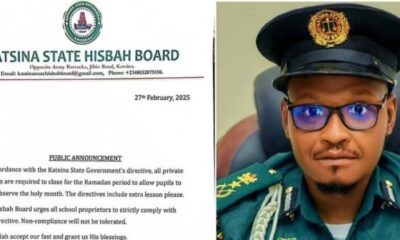Opinion
Tik Tok crisis may linger longer
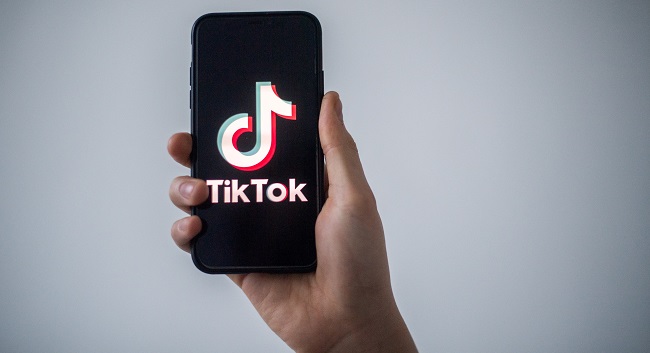
By Sonny Aragba-Akpore.
While the American ban of Tik Tok is on hold for 75 days beginning from January 20,2025,the European Commission is currently scrutinizing Tik Tok,s practices regarding data protection,advertising transparency and potential addictive design features,particularly concerning young users.
African countries have high usage in general in some countries with Kenya being at the forefront.But some have frowned at its usage.
The restrictions in Europe on the app, are particularly on government employee devices due to security concerns, while in Africa, some nations have completely banned TikTok due to worries about inappropriate content and potential political misuse, with Kenya being a notable exception where usage is high.
Some African governments have banned TikTok due to concerns about the spread of inappropriate content, political rhetoric, and others.
Despite concerns, many African creators use TikTok to showcase their culture and creativity.
The ban in the USA could affect American companies like Apple, Google, and Oracle.
The ban could chill certain types of investment and create a slippery slope that applies to other companies.
A TikTok ban in the United States could have several implications, including:
App store removal where TikTok would be removed from app stores like Apple and Google.
Updates would no longer be available as users are unable to update the app, which could lead to performance issues and compatibility problems.
The app could eventually become unusable without updates.
Data security stands risks of inability to associate with a TikTok ban.
There will be Geopolitical consequences as the ban could raise concerns about the government targeting individual companies.
The ban could send a message that the U.S. government is afraid of the Chinese government influencing Americans.
The ban could make online experiences more insular and inconsistent from country to country.
As the future of the social media platform remains murky, plans for an American entity to purchase TikTok appear to be narrowing in scope.
While several individuals and companies have thrown their hats into the ring with interest, President Donald Trump recently expressed his support of two tech giants: Elon Musk, CEO of Tesla and SpaceX, and Larry Ellison, co-founder of Oracle. Oracle, a software company, houses most of TikTok’s U.S. servers.
Plans are already on to meet the 75-day window to stabilize Tik Tok.
General Atlantic CEO Bill Ford said last week that a deal would get done to save TikTok in the U.S. after President Donald Trump signed an executive order that halted a ban on the app for 75 days.
“It’s in everybody’s interest,” Ford told journalists at an event in Davos, Switzerland. Ford is on the board of directors for ByteDance, Tiktok’s Chinese parent company.
“We’ll get on with it, as soon as maybe the end of the week in terms of negotiating what might work … The Chinese government, the U.S. government and the company and the board all have to be involved in this conversation,” Ford added.
Trump’s executive order paused the enforcement of a bipartisan law passed by Congress last year that required ByteDance to sell TikTok’s U.S. assets by Sunday for the app to continue functioning in the country. It was passed amid national security concerns that the Chinese government could get access to Americans’ personal information through the app.
Tik Tok was taken down for 24 hours after the Supreme Court ruling for its ban before President Trump,s Executive Order for a 75-day stay of enforcement.
But the service interruption TikTok instituted hours earlier caught most users by surprise. Experts had said the law as written did not require TikTok to take down its platform, only for app stores to remove it.
Current users were expected to continue to have access to videos until the app stopped working due to a lack of updates.
The company’s app also was removed from prominent app stores, including the ones operated by Apple and Google. Apple told customers with its devices that it also took down other apps developed by TikTok’s China-based parent company, ByteDance including one that some social media influencers had promoted as an alternative.
Under the federal legislation, which remains in place despite Trump’s order, companies could be fined $5,000 per users they help access TikTok. For Google and Apple, this could mean a $5,000 fine for each user who downloads or updates TikTok. For internet hosting services like Oracle, it could mean a $5,000 fine for each user that accesses TikTok using their services.
To break that down, if reportedly 170 million Americans use TikTok and companies could be charged $5,000 per user, that amounts to about $850 billion in fines, spread across different types of tech companies.
Even for tech giants like Google, Apple and Oracle, these are “hefty fines” they could be facing, according to agency reports.
> Apple and Google will be mostly hit by the ban .App Store specifically listed Tik Tok apps including
TikTok,TikTok Studio,
TikTok ,Shop Seller Center,CapCut,Lemon8,
Hypic,Lark – Team Collaboration
Lark – Rooms Display
Lark Rooms Controller will be affected.
Apple said if a user already has the apps on their device, they will remain there but can’t be redownloaded and won’t provide updates. The apps also won’t allow in-app purchases or new subscriptions during the ban.
Instagram Reels, YouTube Shorts, and Triller are similar to TikTok in functionality but with some minor differences. Reels allows videos up to 90 seconds, Shorts up to 60 seconds, and Triller supports longer videos (up to 3 minutes) with advanced editing tools, ideal for music videos. For more editing flexibility, use Movavi Video Editor to customize your clips before posting.
For adult content creators seeking creative freedom, Triller offers advanced editing tools and music-powered features that turn basic videos into pro-level content, while Likee provides a wide range of effects to make your videos more engaging. When you need even greater flexibility and control, try Movavi Video Editor to fine-tune clips, adjust audio, add special effects, and create smooth transitions.
Prior to the Supreme Court ruling in more than two-hour appearance before a panel of three judges at a federal appeals court in Washington, attorneys for the two sides – and content creators – were pressed on their best arguments for and against the law that forces TikTok and its China-based parent company ByteDance to break ties by mid-January 2025 or lose one of their biggest markets in the world.
Andrew Pincus, a veteran attorney representing the two companies, argued in court that the law unfairly targets the company and runs foul of the First Amendment because TikTok Inc. – the U.S. arm of TikTok – is an American entity. After his remarks, another attorney representing content creators who are also challenging the law argued it violates the rights of U.S. speakers and is akin to prohibiting Americans from publishing on foreign-owned media outlets, such as Politico, Al Jazeera or Spotify.
On Monday September 16,2024,ByteDance and it’s short video platform,Tik Tok appeared at a crowded court in Washington DC,the United States of America (USA) before a panel of three judges to appeal against a law that was likely to ban the company from doing business in the USA by January 2025 if it does not divest its operations.
While this legal tussle was ongoing,Nigerian content creators appeared to be the first victims of this long drawn battle between Tik Tok and the American government.
While the content creators wondered what becomes of their trade,Facebook and Instagram were also making things more difficult for them.
Tik Tok ,Facebook and Instagram may have strong reasons for their actions but not as much as we know.
Meta Group,owners of Facebook,Instagram and WhatsApp last week deleted over 1,600 users in Nigeria for alleged scamming activities.
The deleted 1,600 Facebook groups are allegedly linked to Yahoo Boys.
Opinion
5G,IoT and AI to boost global GDP by 2030

By Sonny Aragba-Akpore
With Mobile technologies and services now generating around 5.8% of global Gross Domestic Product (GDP) a contribution that amounts to about $6.5 trillion of economic value, there are strong projections that by 2030, this figure will rise to almost $11 trillion, or 8.4% of GDP.
Global System of Mobile Communications Association (GSMA) says much of this will be driven by countries around the world increasingly benefiting from the improvements in productivity and efficiency brought about by the increased take-up of mobile services and digital technologies, including 5G, Internet of Things (IoT) and Artificial Intelligence (AI).
The GSMA recently introduced the 5G Connectivity Index to provide insights into 5G performance in 39 markets in order to encourage informed decision-making.
In terms of Economic Impact,
the GSMA emphasizes the economic benefits of mobile technologies and services, including 5G, projecting that they will contribute significantly to GDP growth by 2030.
“The GSMA provides specific reports and analyses on 5G in different regions, such as Sub-Saharan Africa, Asia ,Middle East among others highlighting the progress and challenges of 5G deployment in specific areas.”
In Sub Saharan Africa for instance with particular attention on Nigeria,South Africa,Egypt,Kenya and Botswana among others some measure of progress in deployment has been recorded.
The rollout of 5G has brought immense benefits across multiple industry sectors, particularly those involving internet of things (IoT) and artificial intelligence (AI) applications in which the real-time transfer of data is crucial.
More broadly, the adoption of 5G is expected to accompany increased data use across the globe, with forecasts anticipating mobile data traffic of over 300 exabytes per month by 2030, more than twice the volume consumed in 2024 according to Statista.
And with a third of global population expected to be covered by this fifth generation (5G) networks ,a technology that has defined new ways of communication by 2025 ,GSMA
says the technology has surpassed growth projections of all times.
“5G subscriptions increased by 163 million during the third quarter 2024 to total 2.1 billion. 5G subscriptions reached close to 2.3 billion by the end of 2024 accounting for more than 25 percent of all global mobile subscriptions.
“4G subscriptions continue to decline as subscribers migrate to 5G” according to GSMA.
As of the first quarter of 2024, there were nearly two billion 5G connections worldwide, with 185 million new additions. This is expected to grow to 7.7 billion by 2028.”
Statistics show that 5G is the fastest-growing mobile broadband technology, reaching 1.5 billion connections by the end of 2023.
It only took four years to reach this number, compared to 10 years for 3G and more than five years for 4G.
“5G is more than a new generation of technologies; it denotes a new era in which connectivity will become increasingly fluid and flexible.5G Networks will adapt to applications and performance will be tailored precisely to the needs of the user” GSMA submits.
By covering one-third of the world’s population , impact on the mobile industry and its customers will be profound according to GSMA.
To deepen the spread of 5G ,GSMA is working closely with the mobile operators pioneering 5G, “by engaging with governments, vertical industries including automotive, financial services, healthcare providers, transport operators, utilities and other industry sectors to develop business cases for 5G.”
And In order to accelerate the growth and spread, many operators are said to be deploying
AI technology as part of an integral part of telecoms operators’ strategic and operational plans.
“Operators are making important advancements in the deployment of AI technology, which is serving as a transformative force shaping the telecoms industry. By deploying autonomous AI-based systems, operators can enhance operational efficiency, customer satisfaction and security, while also creating new revenue opportunities”.
China, South Korea, the United Kingdom, Germany, and the United States are the leading countries with robust 5G coverage in the world.
Since the first commercial launches of the fifth generation of mobile networks in late 2018, these five countries have emerged as leaders because multiple companies in these countries have deployed networks and are selling compatible devices. Countries including Switzerland and Finland are up and comers in 5G development, though they have limited deployment.
In China there are three Companies leading in deployment.
The world’s largest 5G network was launched by the three largest Chinese network operators Oct 31, 2019, according to the state-run news agency Xinhua. These are China Mobile, China Unicom, and China Telecom which all activated their networks in less than five months after they were issued 5G licenses.
Each of the network operators offered their 5G services at $18 per month in 50 Chinese cities at the beginning of the launch.
GSMA expects 36% of China’s mobile users to be using 5G by 2025. That’s about 600 million subscribers, who would also make up 40% of the entire global 5G market by this year.
This is all despite efforts made by the United States government to hamper the progress of Chinese vendors, though those efforts may affect how Chinese companies may expand into the global market.
In South Korea,SK Telecom and Korea Telecom run as the main competitors for the South Korean 5G market.
SK Telecom acquired spectrum in the 3.5 GHz and 28 GHz frequencies to prepare for deploying 5G.
In April of 2019, the Enterprise claimed to be the first mobile carrier in the world to launch 5G services to work on 5G smartphones. SK Telecom asserted an edge over rival Verizon, as the former launched 5G services available at the same time as Samsung Galaxy S10 5G smartphone launched in South Korea. Verizon launched mobile 5G services in the U.S. before a 5G enabled smartphone was available to U.S. consumers.
SK Telecom also conducted tests with a 5G Standalone (SA) Core (a core not reliant on the 4G network) for their 5G network in cooperation with Samsung Electronics.
The world’s largest 5G network was launched by the three largest Chinese network operators Oct 31, 2019, according to the state-run news agency Xinhua. These are China Mobile, China Unicom, and China Telecom which all activated their networks in less than five months after they were issued 5G licenses. Each of the network operators offered their 5G services at $18 per month in 50 Chinese cities at the beginning of the launch.
“What we are seeing is a concerted effort by the Chinese — the operators, vendors, and government regulators — to deploy 5G as quickly as possible,” Chris Nicoll, principal analyst at ACG Research, pointed this out in a November 1, 2019 SDxCentral article.
With all of these players working together, the three network operators had collectively deployed nearly 86,000 5G base stations peaked over 130,000 by the end of 2019. The latter number breaks down into China Unicom and China telecom, with each planning to install 40,000 base stations, and the market leader China Mobile to install 50,000.This was the projection by 2019 but they have since overshot this by the beginning of 2024.
The International Telecommunication Union (ITU), says 5G coverage reached 40% of the world’s population in 2023 with an uneven coverage and distribution with developed countries having more coverage than low-income countries:
In Europe ,68% of the population is covered and
Americas had 59% of the population covered while
Asia-Pacific has 42% of the population covered as at 2023.
Arab States have 12% of the population covered.
Commonwealth Independent of States (CIS) had 8% of the population covered.
ITU figures show Africa,s coverage rose to 10 % of the population by 2023 .
The ITU also notes that 90% of the world’s population is covered by 4G, but 55% of people without access to 4G live in low-income countries because In low-income countries, 3G is often the only technology available to connect to the Internet.
The ITU develops and adopts international regulations and global standards to enable the harmonization and implementation of broadband mobile networks.
In Africa, around a dozen nations have launched services including Botswana, Kenya, Mauritius, Madagascar, Nigeria, Seychelles, South Africa, Tanzania, Togo, Zimbabwe, and Zambia but Africa is a patchwork of 54 countries.
And penetration is predicted to be slow.
By 2027, Ericsson predicts that 80 percent of phone users in Europe will have 5G service.
At the same time, 5G subscriptions in Africa, home to 1.4 billion people, May stagnate at a little over 10 percent. Why will so few people in Africa get access to 5G services?
China, South Korea, the United Kingdom, Germany, and the United States remain the leading countries with robust 5G coverage in the world.
While many countries are already providing robust services,Africa remains on the outskirts of 5G services.
The countries in Africa that have launched 5G networks, include South Africa with its roll out
In March 2022, when the Independent Communications Authority of South Africa (ICASA) sold spectrum across several bands.
In Nigeria,MTN rolled out commercial 5G services in Lagos in 2022, with other roll out in Abuja, Port Harcourt, Ibadan, Kano, Owerri, and Maiduguri among others.
MTN Congo announced that it was the first country in Central Africa to deploy 5G.
In Botswana Orange deployed 5G technology to provide new services in the Gaborone and Francistown regions.
Other countries in Africa that have launched 5G Fixed Wireless Access (FWA) services include: Angola, Kenya, Zambia, and Zimbabwe.
Analysts say “5G’s potential is growing due to its ability to deliver fiber-like speeds. However, there are still challenges in the region, such as:
Urban areas are reaching their maximum capacity whereas a large portion of the population lives in rural areas.
This explains why 5G adoption in the sub-Saharan region is currently below six percent “
Analysts report that 5G deployment in Africa faces many challenges, including Spectrum assignment,regulatory issues,infrastructure,security,financial resources among others.
“Spectrum is a limited resource that is already in use by other services, such as TV broadcasters and satellite operators. Governments need to open up frequencies and grant 5G licenses at reasonable prices. “
Infrastructure is another major challenge.
“5G networks require a large initial investment, including expensive devices, antennas, and Radio Access Network (RAN) hardware. The infrastructure needs to be fiberized to support 5G services.
Regulatory conditions also serve as challenges to deployment.
For instance “regulatory authorities may not have started the process for licensing and granting frequencies in the right portion “
“Most of the equipment and devices required for 5G deployment need to be imported.”
There are also security challenges that make
5G technology vulnerable to cyber security threats, such as tracking calls and exposing user locations.
Opinion
Right of Reply: THE PUNCH AND BUSYBODY BUSINESS

The recent declaration of a State of Emergency in Rivers State has triggered diverse commentaries from a wide range of Nigerians.
Almost everyone hailed the presidential proclamation because of the visible threat to law and order in the state at the time the action was taken. Of course, there were a few naysayers who read political meanings into an otherwise sincere and prompt intervention.
One such negative interpretation is the position taken by the Editorial Board of The Punch newspaper. In one of its editorials published on the matter, the national daily claimed that the entire crisis was caused by what it described as “the needless meddlesomeness in the governance of the state by its former governor and Tinubu’s Federal Capital Territory Minister, Nyesom Wike….” It is unfortunate that this narrative and others like it have become commonplace in the media space.
How did the Editorial Board of a reputable newspaper arrive at such a conclusion? Their claim that the Sole Administrator, Admiral Ibok Ete Ibas (rtd), has been acting a script purportedly written by the Minister of the Federal Capital Territory, Nyesom Wike, is also faulty and has no iota of truth.
They also faulted the sacking of all political appointees who served in Governor Siminalayi Fubara’s administration, insinuating that their replacements were drawn from Wike’s political camp. Again, nothing can be further from the truth.
Since his appointment as the Sole Administrator of Rivers State, Admiral Ibok Ete Ibas has been running the state with the abundant human resources available in the state and has not imported anybody from outside the state. Did the Editors of The Punch really expect him to run the administration with the politicians loyal to the suspended governor?
Do they not know that the crop of political appointees who served Fubara would have found it difficult to work with the Sole Administrator?
Certainly, they know the truth, but they have chosen to stoke the fire to generate more tensions in Rivers State.
Certain interests might have commissioned this editorial to cast aspersions on the Sole Administrator and raise doubts about his capacity to run the state.
It may also have been the handiwork of Wike’s political detractors, the man whom many politicians love to hate for no other reason than envy and jealousy.
We urge the Punch newspapers to seek a better mode of intervention in the political situation and not dwell on innuendos and unsubstantiated allegations against certain political actors in order to blackmail them.
Dr Ike Odogwu
Opinion
“Chief. Dr. Ekuogbe Akpodiete; A Philanthropist, Lawyer, and Statesman”
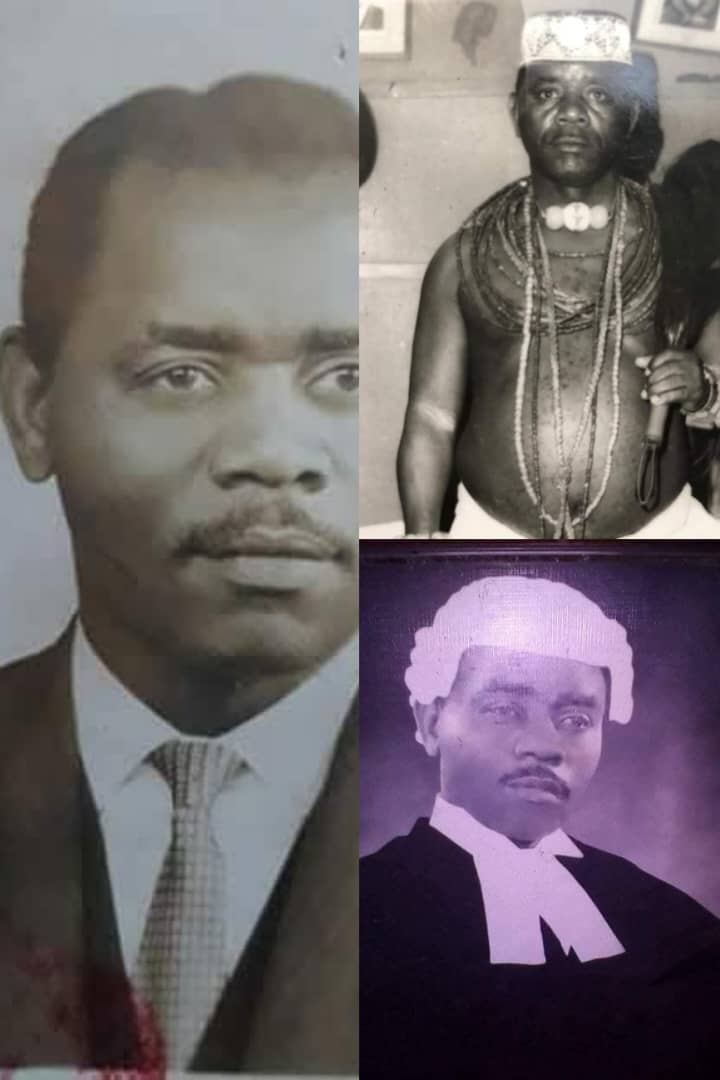
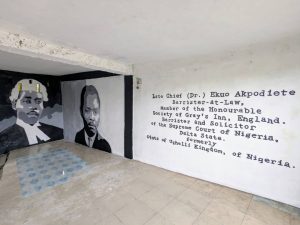
In a life of achievement, Chief Ekuogbe Akpodiete popularly called the Duke by his contemporaries in the UK was an assessment clerk, post office clerk, a court interpreter, an educationist, a business man, a political party chieftain, a Barrister and Solicitor, a Magistrate, the Otota (the Prime Minister) of Ughelli kingdom which is the highest traditional chieftaincy office that underpin the royal office of the Ovie of Ughelli Kingdom.
He was a trail blazer, a strict disciplinarian, a lover of people, and a philantropist. He saw to it that people lived in peace and happiness.
Born on the 4th of April, 1924, to parents cut from an industrious mould, Chief Ekuogbe Rowland Gregory Akpodiete took zealously to education that neither his mother Ughweriaka who was a trader, nor his father Akpodiete who was a farmer had.
He attended the Native Authority Primary School, Ughelli, and Enitona High School, Port Harcourt, for his secondary school education.
He thereafter had a brief teaching career in primary schools in Ofuoma near Ughelli, he worked as a process clerk in the then Sapele Township Department between 1950 and 1953, serving at the same time as an interpreter in the local courts.
He proceeded to the United Kingdom to seek the proverbial Golden Fleece where he worked and paid his way through, studying Law. He was admitted into the Honourable society of Gray’s Inn, England, in 1965, and shortly after, he returned home to Nigeria and attended the Nigerian Law School. He was called to the Nigerian Bar in 1966. He immediately started practice in Lagos. However, his practice in Lagos was regrettably abridged by the Nigerian Civil War, which drove him to his hometown Ughelli in 1967, where he continued to practise among his kith and kin as the first Legal Practitioner.
Chief Ekuogbe Akpodiete established himself in Ughelli. After the civil war, he served in the now defunct Mid-western State Judiciary from 1972 to 1975 as a Magistrate.
He was conferred with the chieftaincy title of Urhukperovie of Ughelli kingdom (the light of the King) by the then reigning Ovie of Ughelli, His Royal Highness Oharisi II of blessed memory in 1977.
In the quest for more knowledge, he went back to England for his Master’s degree in law (LL.M) and later a Ph.D. at the University of Warwick.
He was awarded an honourary doctorate degree (Ph.D) by Tenesse Christian University from the United States of America in 1991.
He became the Otota (the Prime Minister) of Ughelli Kingdom in 1986, an office he occupied until his demise on 9th April 1995.
Chief Ekuogbe Akpodiete was also politically involved. In the heady days of the Awolowo-led Unity Party of Nigeria, he was the party’s legal adviser in Ughelli and was on hand to assist during Chief Obafemi Awolowo’s campaign hosting in Ughelli and its environs.
In view of his love for people and entertainment, he established a popular cinema house, one of the first in Ughelli, known as REGA cinema, coined from his names, alongside an entertainment place called Unutakunu (people talk to people).
Chief Ekuogbe Akpodiete was blessed with wives and many children, grandchildren, and great grand children.
Mr. Olotu Akpodiete, PhD
Executive Director
Olotu & Ekuogbe Rowland Akpodiete foundation
-
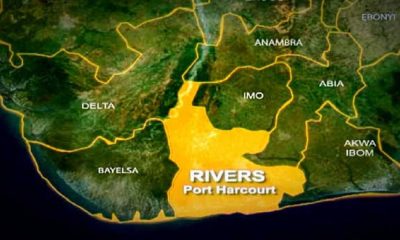
 News20 hours ago
News20 hours agoEmergency Rule: Punch Editorial went overboard – CRP
-
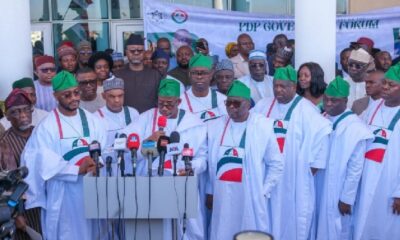
 News8 hours ago
News8 hours agoPDP governors declare support for Tinubu
-

 News12 hours ago
News12 hours agoEx-finance minister rearrested in new fraud probe
-
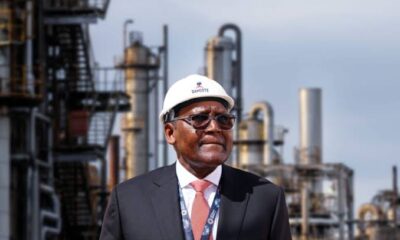
 News9 hours ago
News9 hours agoHope for Nigerians as Dangote refinery slashes petrol price again
-

 News20 hours ago
News20 hours agoJust in: Rivers Administrator summons, suspended Gov, deputy
-

 News20 hours ago
News20 hours agoCBEX Staff Arrested After Trading Platform Collapse
-
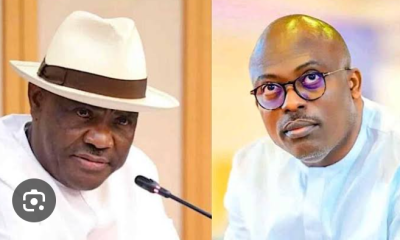
 News12 hours ago
News12 hours agoFubara: How can I forgive somebody who never requested for it– Wike
-

 News13 hours ago
News13 hours agoAlleged Se3ual Harassment: Natasha Declines Out-Of-Court Settlement Proposal By Akpabio’s Counsel










